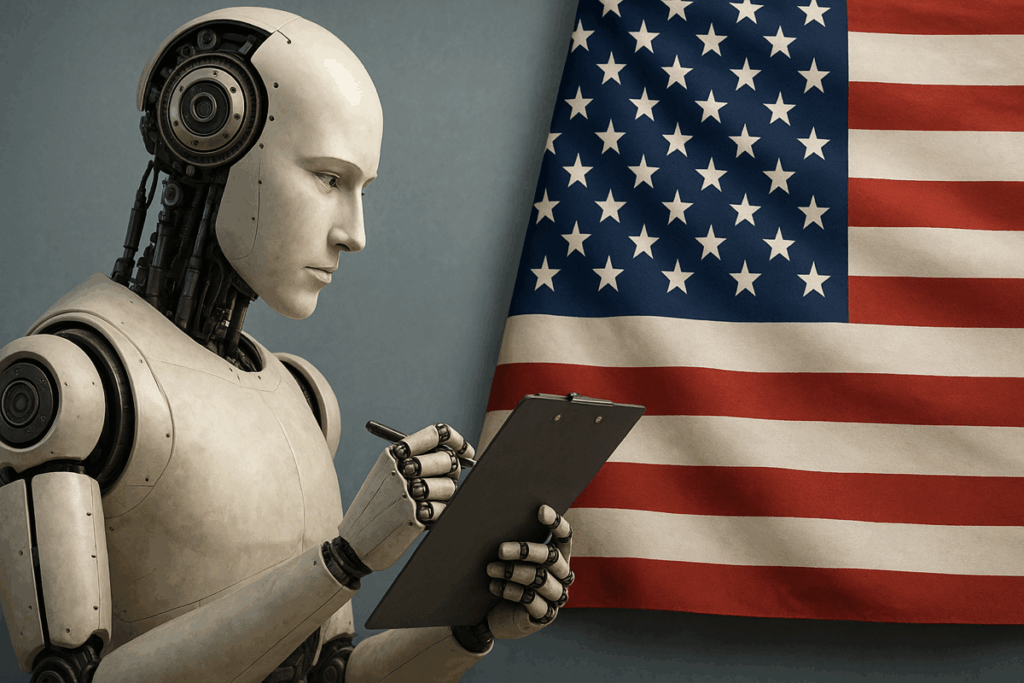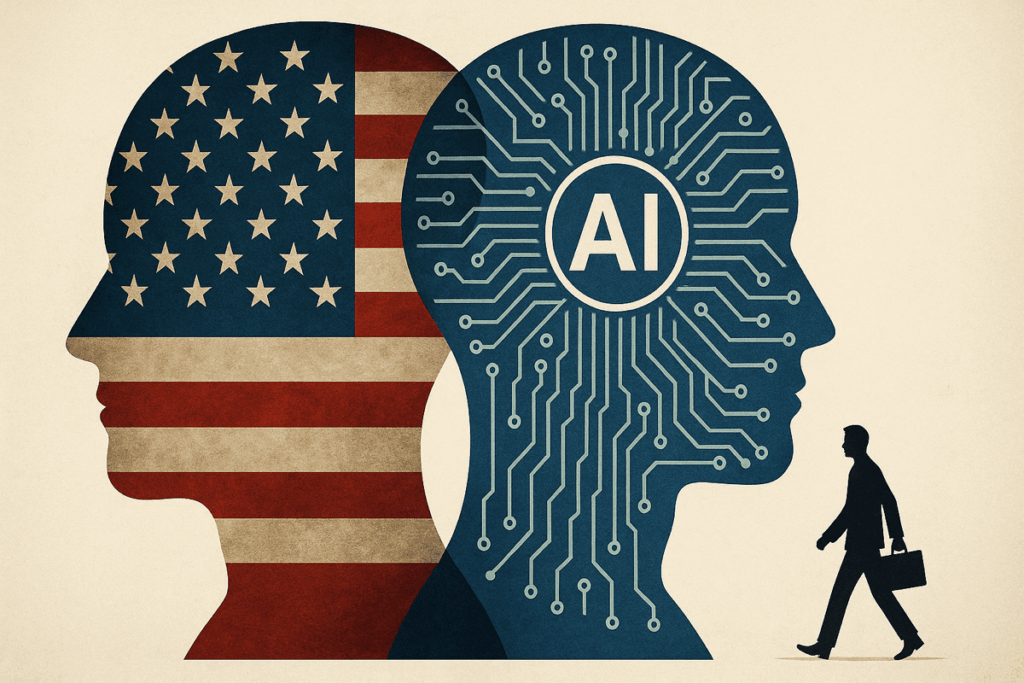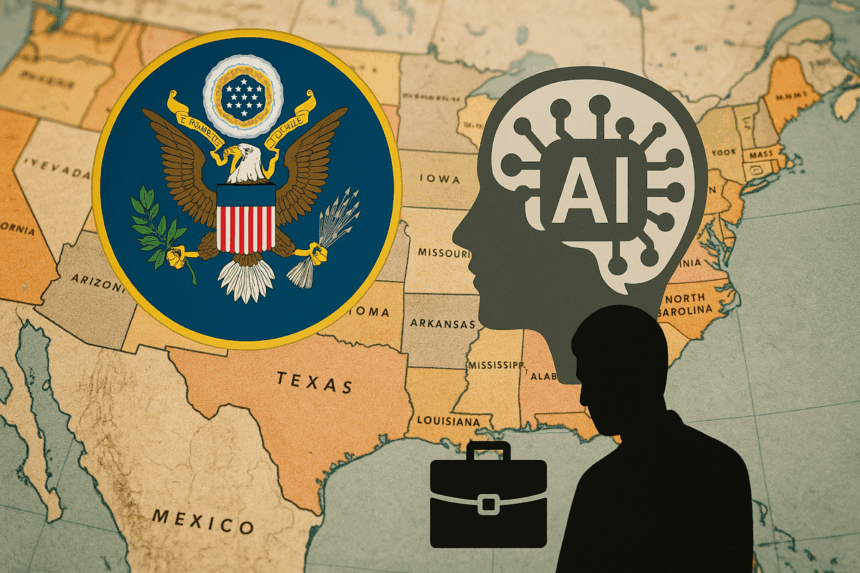The U.S. government prepares to roll out a new artificial intelligence (AI) action plan, aiming to boost AI development while addressing national security and economic concerns. This plan follows months of review and signals a shift in AI policy, particularly under the Trump administration. While the plan promotes AI growth, many wonder: Will AI cost people their jobs? The debate over AI’s impact on the workforce is gaining urgency as tech advances rapidly.
What’s Happening & Why This Matters
The Trump administration crafts an AI action plan that emphasizes deregulation and accelerating AI innovation. This plan follows six months of input from tech advisors, who proposed easing restrictions on AI data centers and speeding AI exports. The goal is to help the U.S. remain competitive globally, particularly in comparison to China.
The plan also aligns with conservative viewpoints about perceived “liberal bias” in AI systems, including OpenAI’s ChatGPT and Google Gemini. Trump’s top AI adviser, David Sacks, has criticized what he calls “woke AI,” arguing that some models distort historical facts or push political agendas. The political rhetoric anchors the administration’s approach to AI regulation and funding.

Several leading AI companies, including OpenAI, Google, Anthropic, and Elon Musk’s xAI, already hold lucrative government contracts totaling up to $200 million. The contracts support national security projects through the Department of Defense. However, the planned executive order could require these companies to maintain “political neutrality and unbiased” AI models to keep federal funding.
Meanwhile, AI’s hyper-adoption fuels fears of job loss, especially in white-collar sectors. Some tech leaders, such as Anthropic CEO Dario Amodei, warn that AI could drive unemployment up to 20% in the next few years. Large companies, including Amazon, Microsoft, Meta, and Salesforce, are increasingly utilizing AI to automate coding and other tasks, thereby reducing their reliance on human labor.
Still, experts caution that AI’s impact on jobs is complex. AI tends to replace repetitive tasks, while freeing workers to focus on creative and relational duties. Meta’s Chief AI Scientist Yann LeCun states, “Most tasks for most jobs can’t be automated.” Others expect new job categories to emerge as AI reshapes the workplace.
Despite uncertainty, Americans express anxiety about AI’s future role. A Pew Research Center survey reveals that over half of respondents worry about the impact of AI on jobs; a third expect fewer personal opportunities. Public concern pressures policymakers to act quickly on training, education, and economic safeguards.

Some companies invest in training their AI workforces. The White House recently launched a pledge signed by dozens of firms committing to AI education for young people. Firms like Freshworks rotate workers from reactive customer support roles — easily replaced by AI — to more interactive, client-focused jobs.
Tech leaders and researchers highlight the need for a new economic and social framework. They urge faster policy responses than seen in previous technology waves. A new “social contract” between workers, employers, and society may be necessary to manage AI’s transformation.
TF Summary: What’s Next
The U.S. AI action plan will accelerate AI development but raises pressing questions about jobs and fairness. Policymakers contend with the forces of innovation and workforce protection. The coming years will test how governments and companies support workers through AI-driven change.
As AI automates more tasks, new roles and skills will emerge. Training and education programs will become vital. The debate over AI’s social impact continues, with public concern pushing for responsible governance. AI’s rise has forever modified how we live and work.
— Text-to-Speech (TTS) provided by gspeech


